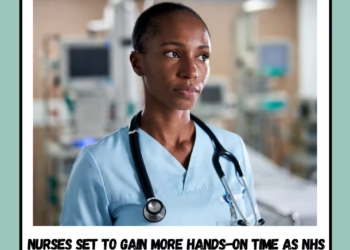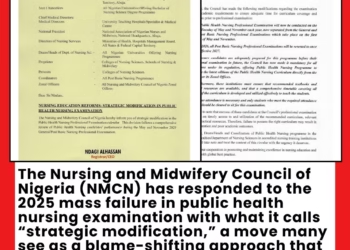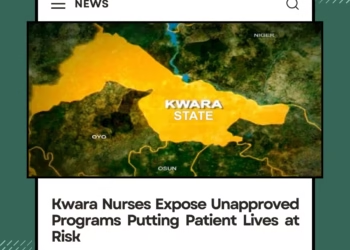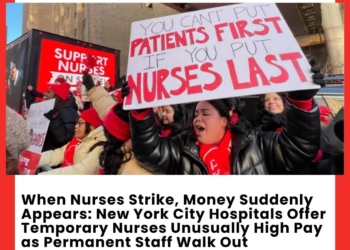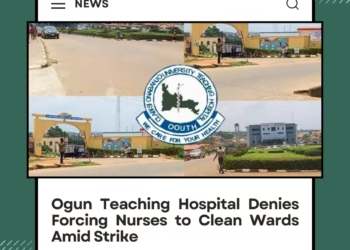Fellow Nurses Africa | Lagos, Nigeria | 01 September 2025
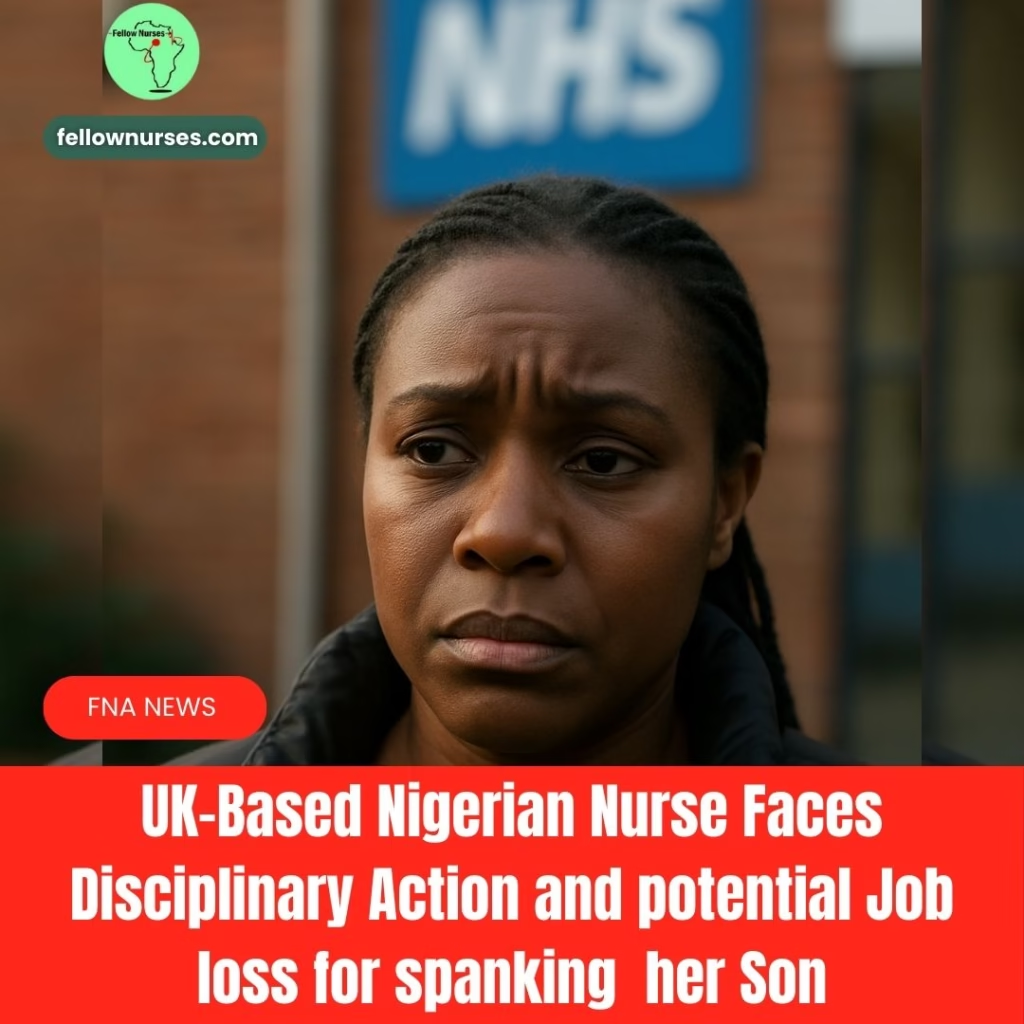
When a Midnight Parenting Decision Threatens to End a Healthcare Career
Picture this: You’re a dedicated NHS nurse, mother of five, and you’ve built a solid life in the UK. Then one night, everything changes because of a split-second parenting decision that millions of parents make every day.
That’s exactly what happened to a Nigerian nurse whose world turned upside down after she disciplined her teenage son for inappropriate behavior. Now she’s staring down the barrel of losing everything – her job, her home, and possibly even her children.
The story reads like something out of a parent’s worst nightmare, and it’s raising uncomfortable questions about cultural differences, parenting boundaries, and just how precarious life can be for immigrant professionals in the diaspora.
When Your Teenager Crosses the Line at Midnight
It was just past midnight when our nurse – let’s call her Sarah since we can’t reveal her real name – heard noises that didn’t belong in a sleeping household. Any parent knows that sinking feeling when something sounds “off” in the middle of the night.
Sarah found her 15-year-old son in his 21-year-old sister’s bedroom. His explanation? He was looking for a phone charger. Simple enough, right?
Not quite. The older sister immediately shut that down, revealing this wasn’t a one-off midnight charger hunt. Her brother had been entering her room late at night repeatedly, despite being told it was inappropriate. Any parent reading this is probably thinking the same thing Sarah thought: “This stops now.”
But here’s where things went sideways fast. When Sarah tried to address the situation, her teenage son did what teenagers do best – he walked away mid-conversation and slammed his bedroom door. Classic teenage defiance, the kind that makes parents’ blood pressure spike.
Sarah followed him to continue the conversation about boundaries. During this exchange, she gave him what she describes as a light tap on the arm – the kind of disciplinary touch that generations of parents have used to get their children’s attention.
That tap would become the domino that knocked down her entire life.
From Parenting to “Assault” in 24 Hours
The next day started normally enough. Sarah’s 13-year-old daughter came home from school with her older brother’s bus pass. But there was one problem – no brother.
Then the phone rang.
Social services had received a report. Her 15-year-old son had told school authorities that his mother had “assaulted” him. The word alone probably made Sarah’s heart stop. In the space of a phone call, she went from being a concerned parent addressing inappropriate behavior to being labeled an abuser.
The ultimatum was brutal in its simplicity: Leave your family home voluntarily, or we’ll remove your son and call the police. But wait – it gets worse. They also made it crystal clear that this “assault” allegation would go on her DBS record, effectively ending her nursing career forever.
Think about that for a moment. A light tap on the arm during a legitimate parenting intervention could destroy two decades of building a career, supporting a family, and serving patients.
The Cultural Collision Nobody Talks About
Here’s what makes this story particularly heart-wrenching: Sarah represents thousands of Nigerian nurses who form the backbone of the NHS. These are professionals who left everything familiar behind to serve in British hospitals, often working the hardest shifts and filling the gaps that keep the healthcare system running.
But there’s a cultural landmine that nobody really prepares these families for. What counts as normal, loving discipline in many African cultures can be viewed through a completely different lens in the UK. It’s like speaking two different languages about the same parenting moment.
Sarah’s NHS manager gets it. This person has worked with her, seen her professionalism, and understands the cultural context. But understanding doesn’t always translate into protection when the bureaucratic machine starts rolling.
When Your Child Becomes Your Accuser
Let’s pause here and think about the 15-year-old in this story. Did he wake up that morning planning to destroy his mother’s career? Probably not. But in today’s world, children are taught to report physical contact from adults – a necessary protection that can sometimes backfire spectacularly.
This teenager’s decision to report his mother has unleashed consequences that would make anyone’s head spin:
- His mother might lose her job
- The family could be separated
- Their home is under threat
- His siblings are traumatized
- And ironically, nobody’s addressing why he was in his adult sister’s room at midnight in the first place
It raises a question that makes parents everywhere uncomfortable: At what point does protecting children from abuse become criminalizing normal parenting?
The UK is desperately short of nurses. The NHS spends thousands of pounds recruiting, training, and integrating international nurses like Sarah. These professionals often work overtime, take on the toughest assignments, and provide care that keeps the system functioning.
Now imagine throwing all that investment away because of a parenting incident that has nothing to do with professional competence. It’s like buying an expensive tool and throwing it away because you don’t like the color of the handle.
Sarah’s case represents not just one family’s tragedy, but a systemic waste that the NHS can hardly afford.
The Diaspora Dilemma: Caught Between Two Worlds
Sarah’s story is playing out in living rooms across the UK wherever African families have settled. Parents are having uncomfortable conversations with their children about the boundaries of discipline, not because they want to harm their kids, but because they’re terrified of being criminalized for parenting.
It’s creating a generation of immigrant children who understand that reporting their parents for discipline can have nuclear consequences. Some see this as empowerment; others worry it’s fundamentally altering family dynamics in ways nobody fully understands yet.
The Professional Price of Cultural Misunderstanding
What makes DBS records particularly cruel in cases like this is their permanence. Unlike criminal courts, which require proof beyond reasonable doubt, DBS decisions can stick based on allegations alone. There’s no expiration date on cultural misunderstandings when they get recorded in these systems.
For healthcare professionals, a tainted DBS is career death. It doesn’t matter if you’ve saved lives, worked through pandemics, or earned the respect of colleagues and patients. One cultural misunderstanding, and decades of professional dedication become irrelevant.
Legal experts describe it as creating a “cultural minefield” where immigrant professionals must navigate not just professional regulations, but also unspoken cultural boundaries that can end careers without warning.
Lessons from the Frontlines
While Sarah fights for her future, her case offers crucial insights for other African professionals navigating similar waters:
Know the Local Rules: Your cultural background doesn’t protect you from local interpretations of child discipline.
Document Everything: Keep records, seek professional guidance, and never assume that being right culturally protects you legally.
Build Your Network: Having colleagues and supervisors who understand your cultural context can provide crucial support during crisis moments. Don’t just work alongside people – help them understand who you are.
Get Legal Insurance: Professional indemnity isn’t just about medical mistakes anymore. Cultural misunderstandings can destroy careers just as effectively as clinical errors.
Teach Your Children: Kids need to understand the consequences of their reports to authorities. This isn’t about silencing abuse victims – it’s about helping children understand that their words can have devastating consequences for families.
The Broader Questions Nobody Wants to Ask
Sarah’s case forces uncomfortable questions about multiculturalism in practice versus theory. The UK celebrates diversity and relies on international healthcare workers, but what happens when cultural diversity conflicts with local legal interpretation?
Is it reasonable to expect immigrant families to completely abandon their cultural approaches to child-rearing? Or should there be more nuanced approaches that distinguish between cultural practices and actual abuse?
The current system seems to offer only binary choices: Complete cultural assimilation or career destruction. There’s little middle ground for families caught between worlds.
A Family’s Future Hangs in the Balance
As we write this, Sarah is living in limbo. Every morning she wakes up not knowing if this is the day she loses her home, her children, or her career. She’s gone from being a healthcare hero during the pandemic to being treated as a potential child abuser because of a parenting decision that lasted seconds.
Her five children are watching their mother fight for survival. Her NHS patients are potentially losing a dedicated caregiver. Her extended family in Nigeria faces financial uncertainty. All because a light disciplinary tap during a legitimate parenting moment collided with a system that sees only black and white in a world full of cultural grays.
This isn’t over. Sarah’s case is still unfolding, and its resolution will either reinforce the message that cultural differences are career-ending liabilities or suggest that there might be room for more nuanced approaches to family disputes in multicultural Britain.
We’ll keep following Sarah’s story and others like it. Because in the end, these aren’t just bureaucratic cases – they’re human stories about families trying to navigate between cultures while serving the communities that need them.
What do you think? Should cultural context matter in parenting decisions? How can societies balance child protection with cultural diversity? Share your thoughts and experiences.
Have a similar story? We want to hear from African healthcare professionals navigating cultural challenges in the diaspora. Your voice matters in this conversation.
Fellow Nurses Africa is the independent voice of African nurses. We educate, inform and support the nursing profession.

